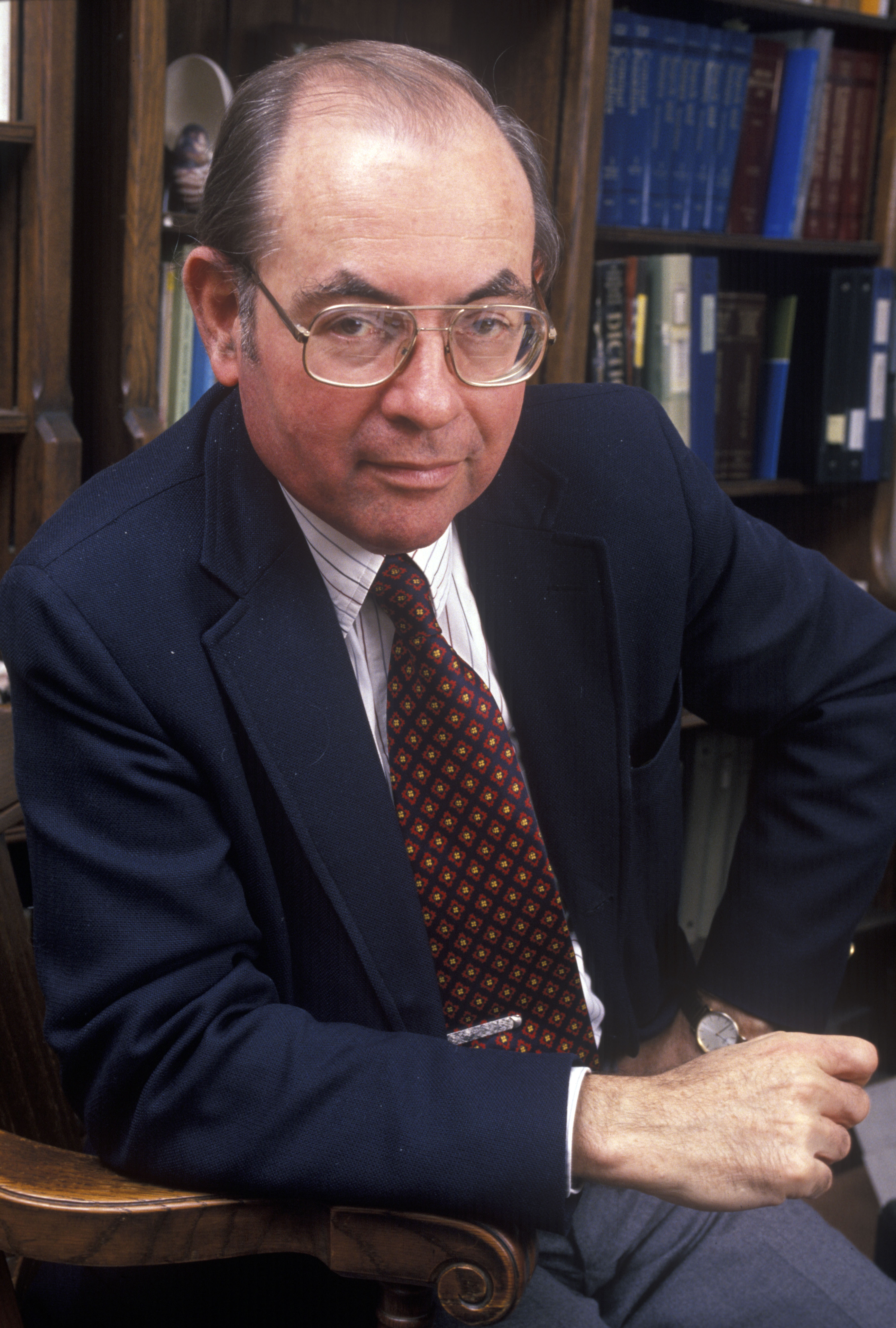
Yale Kamisar, at the time, Henry K. Ransom Professor of Law at the University of Michigan, in His Office at the Law School, January 1989 / Peter Yates via Ann Arbor District Library
Yale Kamisar passed away 30 January 2022 aged 92. He was an American legal scholar and writer and Professor Emeritus of Law at the University of Michigan Law School. Most of us have not heard of him, but his impact on the legal world was ground-breaking. He is known in legal circles as “Father of Miranda”.
If you’ve ever watched an American cop making an arrest on screen, you would probably have heard these words before:
You have the right to remain silent.
Anything you say can and will be used against you in a court of law.
You have the right to talk to a lawyer and have him present with you while you are being questioned.
If you cannot afford to hire a lawyer, one will be appointed to represent you before any questioning if you wish.
You can decide at any time to exercise these rights and not answer any questions or make any statements.
The Miranda warning, as it is commonly known, takes its name from a landmark Supreme Court case in 1966, Miranda v. Arizona, 384 U.S. 436.
On March 13, 1963, Ernesto Miranda was arrested in Phoenix, Arizona, after circumstantial evidence linked him to the kidnapping and rape of an eighteen-year-old woman ten days prior. After being interrogated by police for two hours, Miranda signed a confession to the rape charge. The confession included a typed statement: "I do hereby swear that I make this statement voluntarily and of my own free will, with no threats, coercion, or promises of immunity, and with full knowledge of my legal rights, understanding any statement I make may be used against me."
The problem was that at no time was Miranda told of his right to legal representation. He was not told of his right to remain silent, nor was he told that his statements while being interrogated would be used against him.
At his trial, when Miranda's written confession was introduced as evidence, his court-appointed lawyer objected, saying the confession was not truly voluntary and should be excluded. The objection was overruled, and Miranda was convicted of rape and kidnapping. He was sentenced to 20–30 years of imprisonment on each charge.
Miranda’s lawyer filed appeal to the Arizona Supreme Court. That court upheld the lower court's decision to admit the confession.
These rulings were overturned by the US Supreme Court in a narrow 5-4 decision.
The majority opinion written by Chief Justice Earl Warren said:
The person in custody must, prior to interrogation, be clearly informed that he has the right to remain silent, and that anything he says will be used against him in court; he must be clearly informed that he has the right to consult with a lawyer and to have the lawyer with him during interrogation, and that, if he is indigent, a lawyer will be appointed to represent him
The Miranda decision provoked outrage at the time. Richard Nixon among others said Miranda would undermine the efficiency of the police. When Nixon was elected president, he promised to appoint judges who would reverse a philosophy he thought as "soft on crime."
But the reason why Yale Kamisar — remember that we are talking about him — is considered to be “Father of the Miranda” is because his writings were crucial to that Supreme Court decision. Justice Warren cited Kamisar’s work four times in that decision.
And so that brings me to Kyle Rittenhouse, then 17-years-old who fatally shot two men and wounded another in Kenosha, Wisconsin . Rittenhouse turned himself in to police in his home town of Antioch, Illinois about an hour after the shootings in Kenosha. He invoked his right to remain silent and did not make any statement to the police.
In the subsequent trial, prosecutor Thomas Binger suggested that Rittenhouse had kept silent because he wanted to fit his story to whatever evidence was introduced at his trial. The prosecutor was smacked down by the judge who pointed out Rittenhouse’s constitutional right to invoke silence after his arrest.
Rittenhouse was acquitted on all charges in a unanimous jury verdict.
